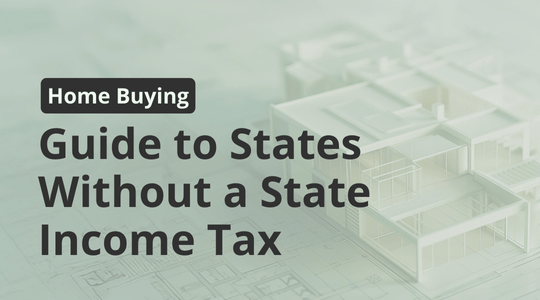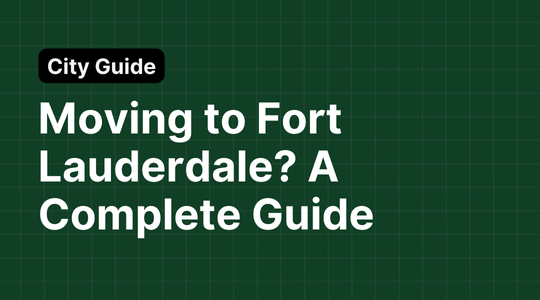Buying a new construction home is a huge milestone, but it’s never as simple as picking a house and signing papers. You must think ahead, understand real estate, and plan accordingly.
Home buying involves multiple steps, and with the right knowledge, you could avoid costly mistakes or even lose out on your dream new home. Understanding the process can save you time and stress and help you avoid common mistakes.
This guide explores ten things you must know before buying a new home and five mistakes to avoid. You’ll learn all the homebuying tips to prepare for this large investment.
 Why Should You Buy a Home?
Why Should You Buy a Home?
Buying a new home has plenty of benefits and perks. First, decide whether a new construction home makes more sense than a resale home. Each has its benefits.
A custom home offers complete control over the design, while semi-custom and production homes offer varying levels of personalization, but sometimes at an additional cost.
Buying a new home isn’t just about owning a house—it’s about upgrading your lifestyle and investing in your future. New homes are built with modern families in mind, and they offer smart technology, energy-efficient designs, and layouts that fit how people like to live today.
Neighborhoods are often chosen for their available land, appealing location and quality of life. These neighborhoods offer an attractive living environment, including green space, playgrounds, safety and community events that make it easy to connect with neighbors and feel at home. Living near top-rated schools and well-planned infrastructure adds even more value for families.
From a financial perspective, buying a new home can be one of your smartest financial moves. New homes hold their value longer, which makes them a solid long-term investment and a great retirement asset. Whether you’re starting a family or planning for the future, buying a new construction home gives you comfort, community, and peace of mind.
Reasons to Buy a New Construction Home
Here are five benefits of buying a new construction home:
- Healthier Living Environment: New homes are typically constructed using safer, more sustainable materials, leading to better indoor air quality and fewer health risks associated with older homes.
- Lower Maintenance: Everything is brand new, so you won't have to worry about unexpected repairs. Most new homes also come with warranties to cover many initial issues.
- Strong Resale Value: A new home is more likely to retain its value over time, especially with modern features and appliances and up-to-date systems that appeal to future buyers.
- No Renovation Hassles: A newly built home should fit your needs from day one without the major renovations often required in older resale properties.
- Latest Technologies and Energy Efficiency: New homes come equipped with modern technology, like smart home systems, and are built to be more energy-efficient, saving you money in the long run.
10 Things You Need to Know Before Buying a New Home
Before jumping into homeownership, especially for the first time, there are some key things you need to understand. These can help ensure you get exactly what you expect.
Let’s discuss the most important things to know before buying a new home.
-
Always Schedule an Independent Inspection
While builders must carry out their inspections during construction, these are often focused on meeting basic safety and code requirements. Hiring an independent home inspector ensures that all elements of your new home meet quality standards and are defect-free.
An independent inspector can catch poorly installed fixtures or improper insulation, which could lead to costly repairs. Remember to review your warranties so you know what’s covered if something goes wrong.

Buying a New Home 101: Don’t rely solely on builder inspections. Hire an independent inspector to ensure quality and peace of mind
-
Hire a Realtor With New Home and Market-Specific Knowledge
It doesn't matter if you want a new construction home or a resale property, having a real estate agent on your side is invaluable.
A real estate agent with experience in new home builds and the market you’re interested in can help you navigate the process from beginning to end. They can help you get upgrades for new construction homes or even try to negotiate financial incentives like lower closing costs.
Buying a New Home 101: An agent can negotiate upgrades or incentives you may not know are on the table. Many builders cover the buyer’s agent fees for new construction homes, so having that extra protection won’t cost you anything. Furthermore, an agent can help navigate contracts and timelines to ensure you clearly understand what to expect.
-
Prepare for Potential Delays
One of the biggest challenges with buying a new home is the timeline. While builders might give you an estimated completion date, delays are common due to supply chain issues, weather, or even labor shortages.
- New Construction Homes: Builders typically provide an estimated completion date, but delays can happen. If you're selling your current home while waiting for the new one to be ready, you may need temporary housing and/or a bridge mortgage to manage the gap.
- Resale Homes: Resale properties generally have a faster and more predictable timeline. You can move in soon after closing or on an agreed-upon date, reducing the risk of delays. However, resale homes may require renovations or repairs, which could extend your actual move-in date if unexpected issues arise.
Buying a New Home 101: For new construction, always add a buffer to your timeline and budget for potential delays. With resale homes, plan accordingly for any renovations to avoid surprises:
-
Research a Builder’s Reputation
While some builders have a stellar reputation for high-quality homes and customer service, others may cut corners. Start by researching a builder’s previous projects by going over online reviews, Better Business Bureau ratings, and any feedback from previous buyers.
You might discover that a builder has a reputation for delays or using lower-quality materials. It’s also a good idea to check if the builder is part of any professional associations, which can be a sign of credibility.
The last thing you want is to move into your dream home only to discover it was built using subpar materials or poor craftsmanship, leading to significant issues that will cost you a lot.
Buying a New Home 101: Request a builder portfolio or a list of completed projects and references. Most reputable builders won’t hesitate to share this information.
-
Negotiate Before Buying a New Home
While not every builder will negotiate, the price for a new home isn’t set in stone. Builders often have room to reduce the cost, especially if you’re purchasing a semi-custom or production home.
If you’re working with a developer in a large community, you can often negotiate for better flooring options, upgraded countertops, or even a more favorable lot location.
Also, make sure you fully understand your upgrade options and don’t be afraid to push for a better deal.
Buying a New Home 101: Don’t forget to negotiate upgrades or lower closing costs rather than the base price, as most builders will be more open to this. Also, builders tend to offer promotions during off-seasons.
 Look for Red Flags Before and After Inspection
Look for Red Flags Before and After Inspection
Whether it’s a new or resale home, you should always inspect for issues even after a home inspection has been performed.
Is the paint uneven? Do the walls have cracks? Is there a strange odor? These can indicate potential problems, such as water damage or structural issues.
Buying a Home 101: Trust your instincts and always perform a professional inspection even if nothing seems off. Many homebuyers report unexpected issues after moving in, most of which could have been spotted early with a more thorough inspection.
-
Review Every Term in a Contract
You need to review and understand every term and clause in your purchase agreement. Don’t hesitate to ask for clarification on payment schedules, construction timelines, or materials used.
If a builder promises high-quality materials but the contract lists cheaper alternatives, you need to address this upfront. Projects sometimes run over budget or experience delays, so knowing your rights and the builder’s obligations is critical.
Buying a New Home 101:
Always hire a real estate attorney to review the contract, especially for custom builds.
-
Build Extra Cash Reserves
Unexpected costs can pile up, especially for upgrades. Set aside 15-20% of your budget to cover any additional expenses.
For example, if your home project is expected to cost $300,000, consider having an extra $45,000 on hand. This cushion can prevent stress and help you handle unexpected costs without derailing your plans.
Buying a New Home 101: Try to negotiate for “turnkey” options that include landscaping and appliances to lower ongoing expenses.
-
Shop Around for Mortgage Rates and Secure a Pre-Approval
Getting pre-approved for a mortgage is the first step. Shop around for the best interest rates and terms, as this can save you thousands over the life of your loan.
Remember that 45% of homebuyers save money by comparing multiple lenders.
Buying a New Home 101: Even after receiving your pre-approval letter, explore different loan options that could save you thousands over the life of the mortgage.
10. Understand What’s Included and What’s Not
Don’t assume everything you see in the model home comes standard when buying a new home. Ask for a detailed “inclusions list” that specifies what’s included in the base price and what’s extra.
Buying a New Home 101: Model homes typically showcase upgrades—clarify what’s standard before committing to the base price.
5 Mistakes to Avoid When Purchasing a New Construction Home
Buying a new home is exciting, but getting caught up in the fun can result in mistakes that could cost you time, money, or even your dream home.
Here are five common mistakes to avoid and some practical homebuying tips for buying a new construction home.
-
Not Negotiating with the Builder
Many homebuyers assume the price or terms set by the builder are non-negotiable and that’s simply not true.
Builders are often open to negotiating prices, upgrades, or even closing costs. Buyers who negotiate with builders can save on costs or get better deals on upgrades.
A real estate agent familiar with new construction can help you navigate these negotiations.
-
Overlooking Hidden or Additional Costs
It’s important to factor in hidden fees and additional costs beyond the sale price. This is one of the most essential tips for first-time homebuyers.
Closing costs like lawyer fees, title insurance, and mortgage origination fees typically range from 2% to 5% of the home’s sale price.
Also, many new developments include Homeowners Association (HOA) fees, which can start at $200 to $500 monthly, depending on the community, rules and shared amenities.
Most homebuyers planning to buy a new construction home tend to forget that they might have to spend some money on various extras, so it is best to budget for these costs from the get-go.
-
Skipping a Final Walkthrough Before Closing
One of the most overlooked mistakes when buying a new construction home is skipping the final walkthrough.
Oftentimes, when everything may seem perfect on paper, small issues can still arise during construction. In such cases, a final walkthrough allows you to catch last-minute defects like incomplete finishes, faulty appliances, or paint inconsistencies before you officially close on the home.
 Paying for Unnecessary Upgrades
Paying for Unnecessary Upgrades
It’s easy to indulge in all the choices offered inside a builder’s showroom, like luxury faucets, custom cabinetry, or high-end finishes.
While upgrades can make your new construction home feel luxurious, not all of them will give you a strong return on investment when it’s time to sell.
Investing in custom-built cabinetry or premium flooring may be appealing, but “over-improving” a home beyond the value of similar homes in the area could make it harder to recover your costs. Instead, focus on upgrades that enhance functionality, like energy-efficient appliances, smart home systems, or durable countertops that appeal to a wide range of buyers.
-
Not Understanding Warranties and Timelines
Not all warranties are the same. To avoid unnecessary delays, ensure you understand what is covered and ensure clear timelines with your builder.
Builders offer two primary types of warranties: an implied warranty and an express warranty. The implied warranty guarantees that new homes will be suitable for living and in compliance with local building standards. The express warranty covers the electrical, plumbing, and structural systems, among other things.
Know what the warranty covers and ask questions about the builder’s timeline for finishing the home. This is one of the questions to ask when buying a new construction home, and it’s critical to establish clear timelines from the start.
Questions to Ask When Buying a New Construction Home
When purchasing a new construction home, asking the right questions helps avoid surprises.
Here are the key questions to ask:
- What’s the estimated completion date and what happens if there are delays?
- What features are included in the base price and what’s considered an upgrade?
- What warranties are provided and what do they cover?
- Are there HOA fees and what rules apply to the community?
- How often will I get progress updates?
- When will I be invited to visit the home?
Ready to Buy a Home?
Buying a new home is an exciting journey but requires careful planning and attention to detail. Remember, you can avoid common pitfalls by hiring an independent inspector, researching the builder’s reputation, and preparing for delays.
Negotiating wisely, shopping for financing, and planning for unexpected costs are also important. By staying informed and proactive, you’ll save money and ensure your new home is everything you dreamed of.
Remember, a well-planned purchase sets the foundation for a smooth and satisfying homeownership experience.
FAQs
Do I need a real estate agent when buying a new home?
While you are not required to have a real estate agent, the right one can be invaluable. A real estate agent can negotiate better deals and protect your interests, often at no extra cost.
How can I prevent delays in the construction of a new home?
While delays can happen, having backup housing options, and clear communication with your builder helps minimize surprises.
Is it possible to negotiate a new home's price?
Builders often have room to negotiate prices, upgrades, and closing costs. Not trying to negotiate would be doing yourself a disservice and could cost you extra money.
How can I research a builder’s reputation?
You can check online reviews, visit past projects, and talk to homeowners. Your real estate agent can also provide insights into a builder’s track record.
What are common hidden costs when you buy a home?
Landscaping, window coverings, and HOA fees are often not included in the base price, so budget for these extras.












